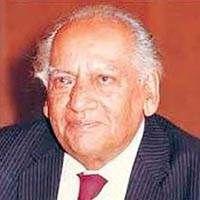
Faiz Ahmad Faiz was a prominent Pakistani poet, journalist, and intellectual who is considered to be one of the most influential Urdu poets of the 20th century. Born on February 13, 1911, in Kala Qader, British India, Faiz grew up in a family of scholars and was educated in Lahore, Pakistan.
Faiz's poetry is known for its revolutionary and progressive themes, reflecting his belief in social justice, equality, and human rights. His poetry often addresses the struggles of the marginalized and oppressed, and his work has been a source of inspiration for many political and social movements in Pakistan and beyond.
One of Faiz's most famous poems is "Hum Dekhenge," which he wrote during the era of General Zia-ul-Haq's military dictatorship in Pakistan. The poem became a symbol of resistance against the oppressive regime and was later set to music and became a popular protest song.
Faiz's poetry is also characterized by its lyrical and evocative language, which is rich in symbolism and metaphor. His use of imagery and his ability to convey complex emotions and ideas in a simple and accessible way have made his poetry widely read and loved.
In addition to his poetry, Faiz was also a prolific journalist and a committed political activist. He was imprisoned several times for his political beliefs and activities, and his work as a journalist and editor of the Urdu newspaper "Imroze" was often censored and suppressed by the Pakistani government.
Despite facing many obstacles and challenges in his life, Faiz remained committed to his ideals and continued to write and speak out against injustice until his death in 1984. Today, he is remembered as one of the greatest Urdu poets of all time, and his legacy continues to inspire and influence generations of writers, activists, and artists in Pakistan and around the world.
